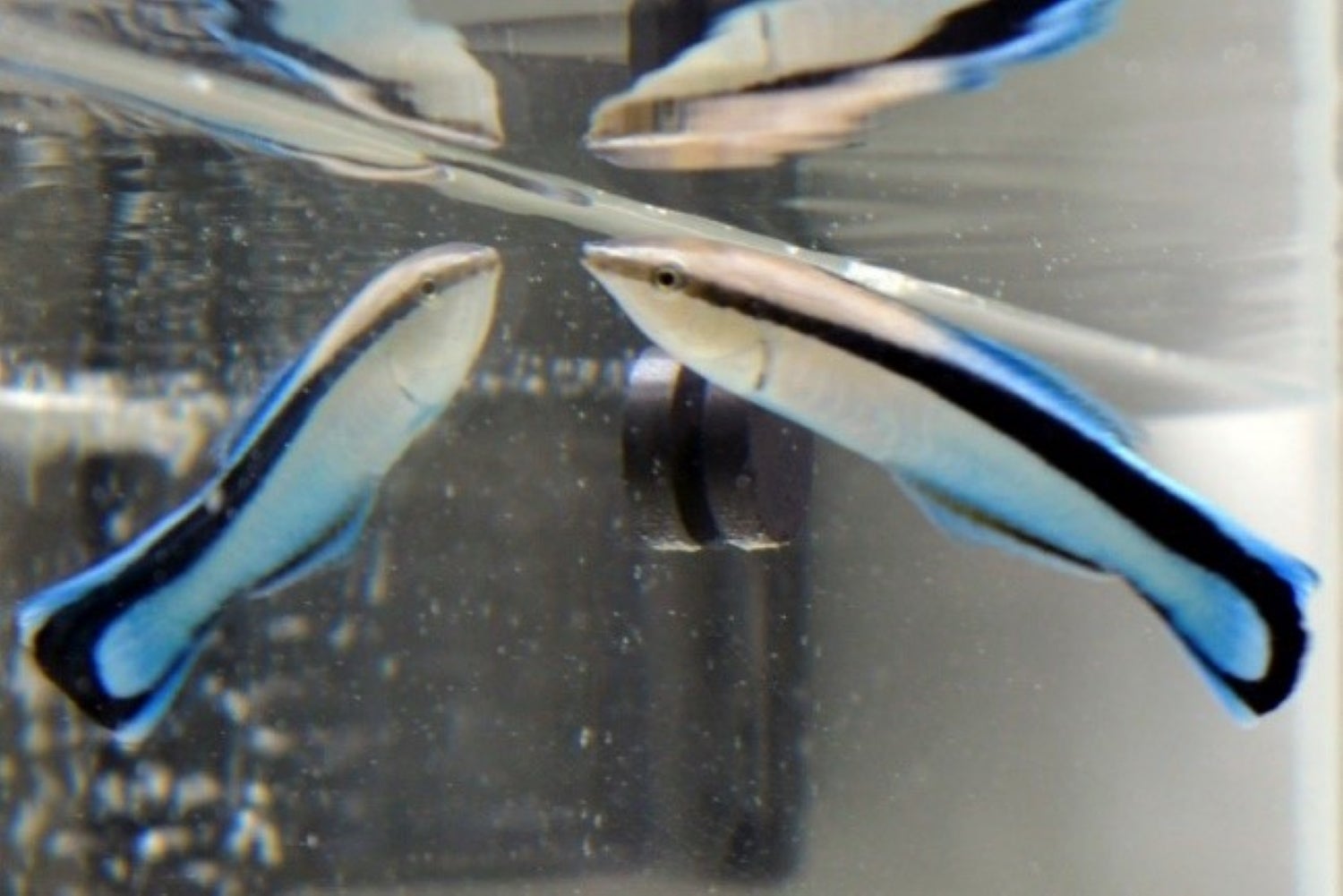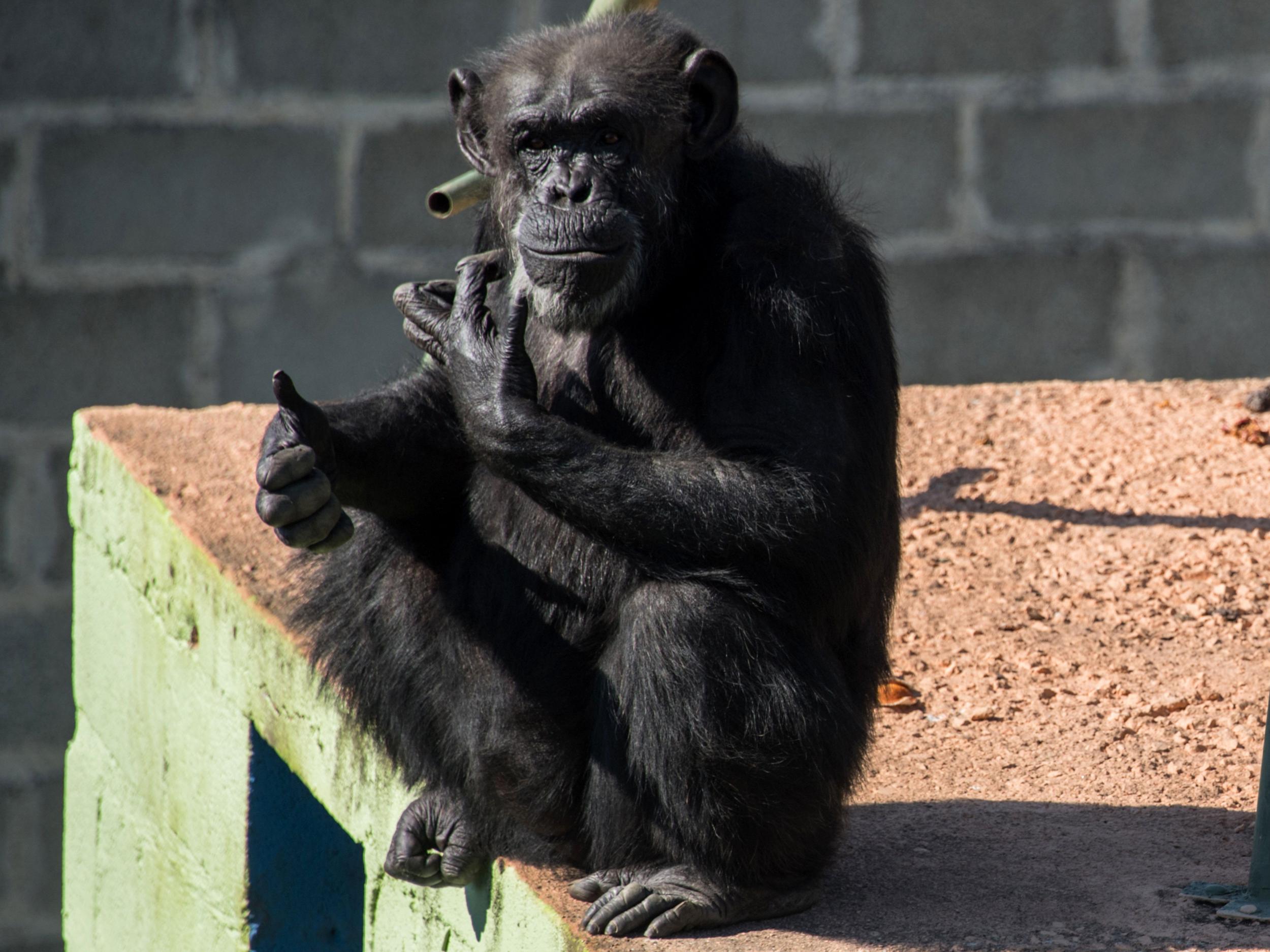Tiny fish found to have sophisticated self-awareness only ever seen in some humans
Tiny fish found to ‘check its body size in the mirror before getting into fights’

A small tropical fish may possess a sophisticated type of self-awareness only ever seen in humans, scientists have said.
Researchers have discovered that the bluestreak cleaner wrasse – which are about the size of a human finger – will check its body size in a mirror before deciding whether or not to “attack” other fish.
It means the fish can not only recognise its own reflection but may also have an internal awareness of their own bodies.
Researchers led by a team at Osaka Metropolitan University in Japan said the findings, published in the journal Scientific Reports, provide “important clues” on how self-awareness evolved.
Taiga Kobayashi, a researcher at Osaka Metropolitan University, said: “The results that fish can use the mirror as a tool can help clarify the similarities between human and non-human animal self-awareness.”
Chimpanzees, dolphins, elephants, pigeons and magpies are among a handful of species that have passed the mirror self-recognition (MSR) test, a classic test for determining self-awareness.
It involves putting marks on the body – in places where the animals cannot usually see such as the chest or face – using paint or stickers, and then placing the animals in front of the mirror to see whether they examine these marks.

However, the authors said that this classic MSR test does not demonstrate “private” self-awareness, which is more sophisticated and involves focusing on internal aspects such as goals and intentions.
Previous research has shown that cleaner wrasse – which get their name because they provide a “cleaning service” to larger fish by removing parasites, dead skin, and other debris from their bodies – can pass the MSR test.
But the researchers wanted to know whether these creatures have the ability to construct a mental image of their body after looking at themselves in the mirror and make decisions based on this mental representation.
So they selected 15 cleaner fish, seven of which had access to a mirror inside an aquarium while the rest were used as controls.
These fish were then presented with cut-out photos of a different group of fish that were either slightly (10%) bigger or slightly (10%) smaller.
The team found that the cleaner wrasse previously exposed to mirrors were less aggressive towards larger and same-sized fish in the photos but were more hostile towards the smaller fish.
When presented with photos of larger fish, some of the cleaner wrasse were observed swimming parallel to the mirror repeatedly.
The authors wrote: “These findings suggest that these fish may have assessed their body size to decide whether to exhibit aggressive behaviour toward the intimidating larger photograph.”
The researchers said that this implies cleaner wrasse may be capable of metacognition – which is an individual’s ability to reflect on their thought process to plan and make decisions – but added further research is needed to confirm this.
Join our commenting forum
Join thought-provoking conversations, follow other Independent readers and see their replies
Comments
Bookmark popover
Removed from bookmarks